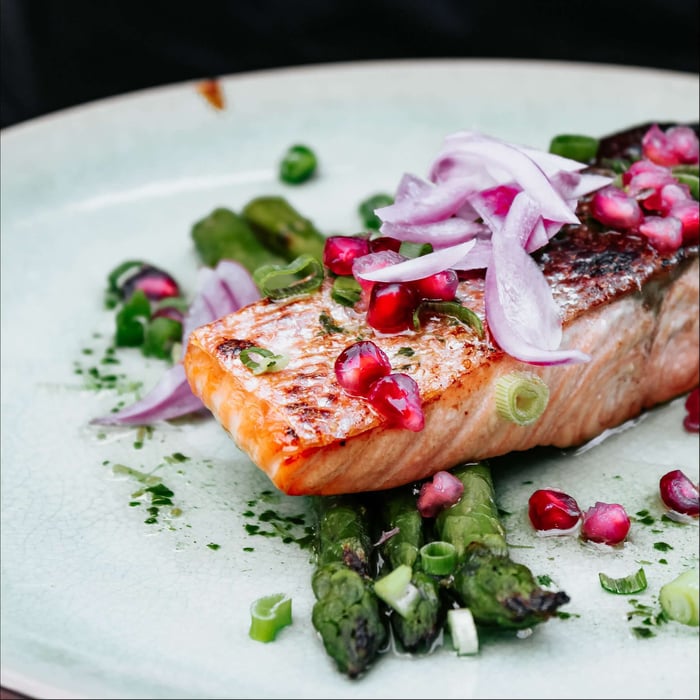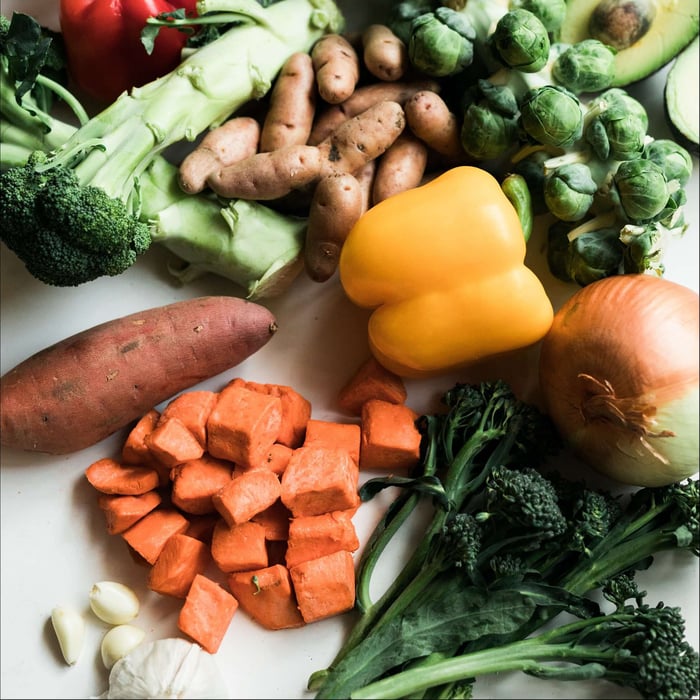High Mood Food: How Diet Affects Mental Health
Last week was World Mental Health Day which I’m sure you were aware of because of the widespread coverage on social media and in the press. I think that this year, more than ever, World Mental Health day was vitally important for providing resources, awareness and support to those who need it most. Even for those of us that would say that they don’t typically suffer with their mental health, this year so far has been a real challenge for all of us in so many ways. I wonder, though, how much coverage diet got as being a contributing factor in instances of poor mental health? I personally didn’t see all that much written about it so I wanted to address it here today, as in my view our diet is one of the most crucial elements in maintaining a positive mental attitude.
How does diet affect mental health?
Anxiety and depression are essentially inflammatory conditions whereby the neurons in the brain, the microglia, become inflamed. There are a number of things that have been studied as being causative for this brain inflammation, stress in particular is one, but not getting the right amounts of nutrients that the brain requires is another. Did you know that our brains are 60% fat? I honestly shudder when I think back to the fat shaming era of the 70s, where hydrogenated margarine was heralded as a saviour (FYI there is nothing better to put on your toast for your health than grass fed butter), and seriously wonder how they all coped without enough fat in their diets to support the correct functioning of the brain.
Brain Fats
The brain needs EPA and DHA to function optimally and these are found in animal fats, namely oily fish but other sources too. In a plant based diet you get mainly ALA (don’t worry about all these abbreviations, just go with it), and our bodies can convert some ALA to EPA/DHA but not enough. Therefore it is vital that if you’re vegan or plant based you supplement with a EPA/DHA supplement from plant based sources. By far the easiest thing to do, however, is eat a varied diet including lots of wonderful brain-healthy fats!
Blood Sugar
Blood sugar has a huge impact on our happiness levels and our brain health and we really, really mustn't underestimate this. The brain runs on glucose (sugar), in fact 30% of everything we eat is used as fuel by the brain, and too much or too little is a disaster for us brain wise. Typically we all fall into the “too much” category with porridge for breakfast, coffee, carbs, fruit, “healthy” baking (a.k.a. Medjool dates and mashed bananas), etcetera etcetera but it’s also dangerous to be in a hypoglycaemic state (too little sugar), as too little glucose to the brain causes our body to activate a stress response.
Now, remember how I said that anxiety is an inflammatory condition? Okay, so insulin resistance creates inflammation in the brain, and insulin resistance comes from having a blood sugar level that’s out of balance due to eating constantly, and having too many carbohydrates and too much sugar. You’ll know if you’re in an insulin resistant state because you’ll:
- Have sugar and caffeine cravings
- Feel tired after meals
- Be thirsty all the time
- Have hormonal imbalances and issues with your periods being painful or heavy
- And need to wee constantly!
If any of that relates to you then it’s time to get your blood sugar levels under wraps again in order to protect your brain and boost your mood.

Boost your gut health and your mood with our two-step Gut Cleanse Protocol! Designed by leading Nutritionist Amanda Hamilton to include gut-friendly ingredients like pre and pro biotics!
"I've just completed my first three-day gut cleanse and I feel great! This was just the right one for me, helping to settle and rejuvenate my digestive system. The service is very efficient: the bottles arrived on the morning of Day 1, well packaged. All the juices tasted good, and the whole set has clearly been very well put together. I loved the end-of-day drink and the watermelon to kick-start things! Day 1 I almost didn’t finish the drinks as I felt so full. By Day 3, the quantity felt just right. Three days was a good amount for my first time, but I might be tempted to extend in future. I will be back for more!" - Lyndsay W, Gut Cleanse One
The Gut-Brain Axis
Wahoo the Gut Brian Axis, my fave! There’s a reason they call our gut our second brain - if what’s going on in the gut isn't right then messages will be sent to the brain saying so via the vagus nerve. There’s a great phrase in functional medicine that will help you remember this vital connection: “What happens in Vagus!” But in this instance what happens in vagus does not stay in vagus. If we don’t look after our gut health with good food choices (diversity, colour, abundance), good quality sleep, healthy environments (getting out into nature as much as possible, living in a toxin free space as much as possible etc), then all of that information will be communicated to the brain via the vagus nerve and brain inflammation, anxiety, depression etc is much less likely. Flip that scenario and add in stress, not enough brain fats (e.g. a poor vegan diet), bad sleep and excess toxicity and you’re well on your way to feeling quite low mentally.
So, in conclusion, ways to improve your mood with just your food are:
- Eat the rainbow every day to get those plant polyphenols, vitamins, minerals and antioxidants in.
- Eat good quality essential fats: EPA and DHA from oily fish. Also include grass fed butter and olive oil etc. If you are vegan or plant based, please supplement.
- Consider the health of your gut: Do you suffer with any digestive discomfort? Bloating, IBS, gas, trapped wind? If so, get it checked out (my clinic door is always open).
- Eat to feed your gut microbes: Fibre, a diverse range of food and fibres, nothing processed.
- Avoid sugar (certainly the white stuff) but also watch out for ‘healthy’ sugars in abundance: Dates, tropical fruit, carbs upon carbs upon carbs. Remember, our brain needs glucose but there’s a fine line between too much and too little. Aim to balance your blood sugar by including some healthy fats and protein at every meal (yes, including breakfast!)
@gracekingswell
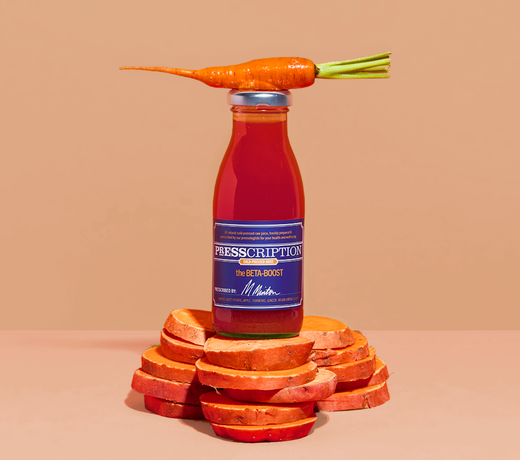 Why Presscription?
Why Presscription?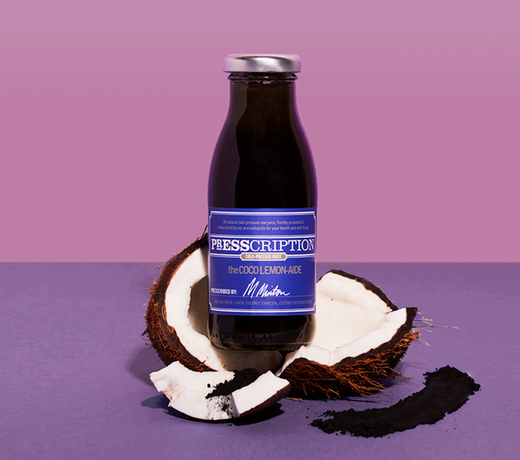 Why Cleanse?
Why Cleanse?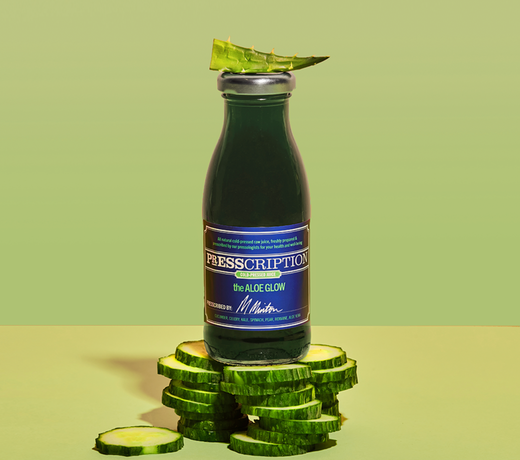 Cleansing Tips
Cleansing Tips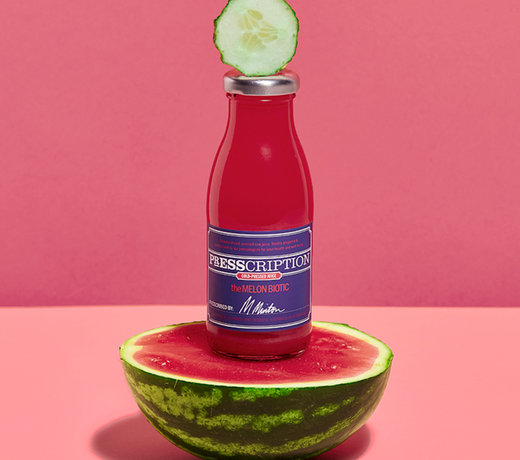 What's Pressing?
What's Pressing?
